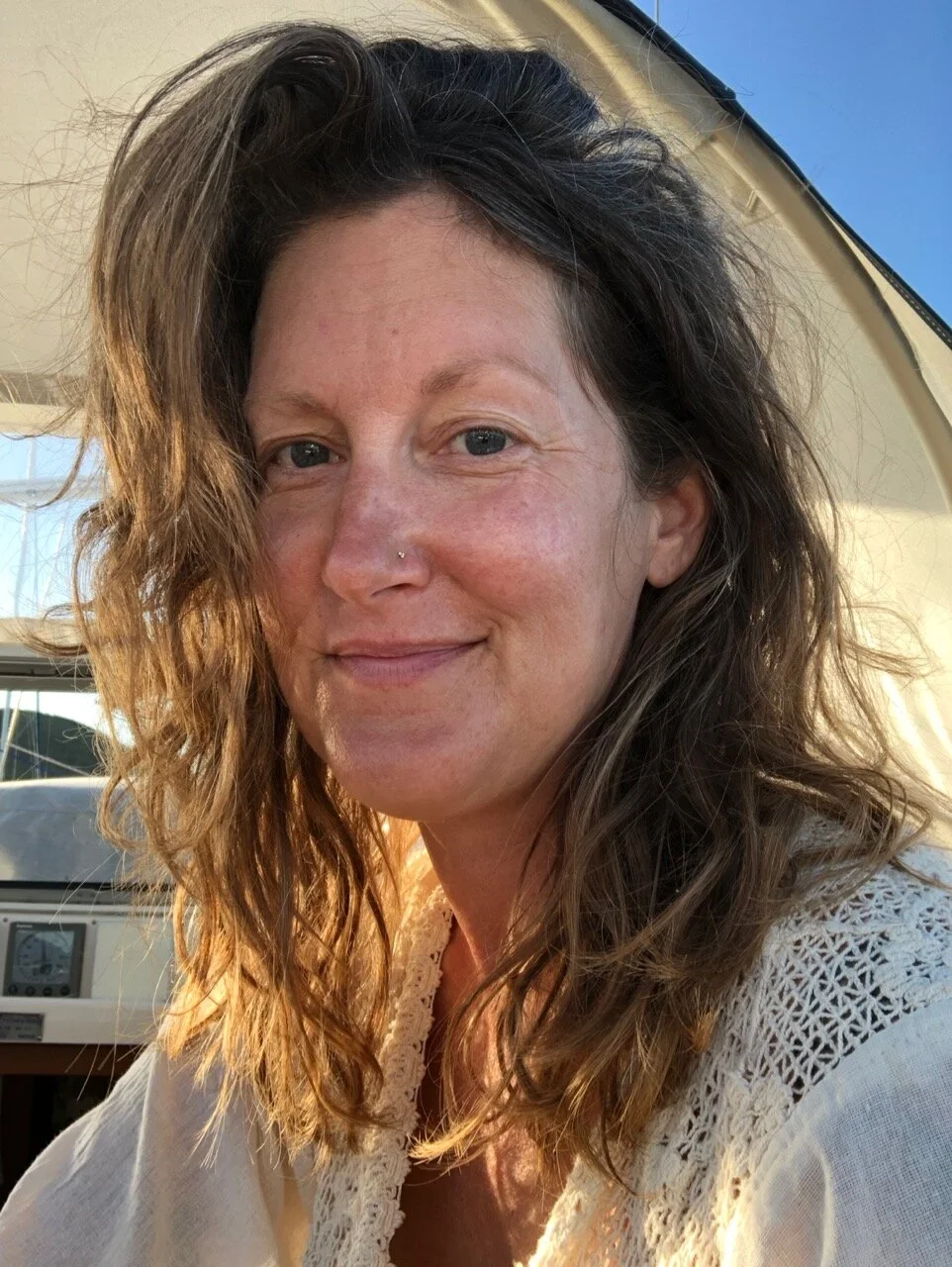A MEDITATION ON SAILING THE PANDEMIC
“The bird of freedom has two wings: practice and nonattachment.” Dahlia discusses change and adaptation in sailing and life.
Image by: James Home
BY KRISTIE DAHLIA HOME
Sailors often joke about “boat yoga” as we cram our bodies around engines and into lockers, but sailing has deeper connections with mindfulness and meditation. Two common sailor sayings show the way:
The most dangerous thing to have on a boat is a schedule.
Always have a Plan B… and C.
Sailing teaches us to prepare as best we can. We prepare our ship, our skills, and our plans, but then we have to meet the moment as it is. We cannot control the sea or the sky; we must respond to them. Yogis have a saying:
The bird of freedom has two wings: practice and nonattachment.
“I was delighted to learn that many things I had feared before we left: sailing at night, being long out of sight of shore, being alone at sea -- turned out to be my favorite things.”
Image by: James Home
I like to say this in an everyday way as show up, let go. Sailors learn this naturally. We have an off day docking, get hit by an unforecast squall, drop valuable tools or parts into the sea, snag a line just as we round a race marker--then we come back and do it again. We are honed by humility and perseverance. We also learn tapas, a yogic virtue that encourages growing through the embrace of hardship. Mariners express this as: embrace the suck. We learn to carry on even when we are afraid, and in doing so, we learn that we are larger than the temporary waves of our emotions. We learn that we don’t have to be comfortable all the time, and that the best adventures often involve great challenges. If we make passages, we remember the natural art of meditation, contemplation, mindfulness as we watch the sea for hours in the dark by the light of the moon and stars — if we’re lucky. My husband and I planned my first overnight passage along the California coast for an almost full moon that would be up all night. Instead, we were socked-in-with-fog for that entire freezing trip from Monterey to Morro Bay. It was my first time sailing in fog. It was terrifying. It was magnificent. I treasure that long dark night and the sunrise that followed. My first season cruising, I was delighted to learn that many things I had feared before we left: sailing at night, being long out of sight of shore, being alone at sea -- turned out to be my favorite things. It also turns out that I sort of love emergencies; the creativity and absolute presence that they demand make me feel so alive.
I’ve been so heartened to see this taught again and again in our conversations in the Women Who Sail group. People facing their first night passages ask for support with their fear and are met with words of kindness from experienced folk. Like me, they say that they love the night. They reassure that it will be okay, that women are not alone because they are held by this community of sailors. Recently, life on land has become more like life at sea, as nature has suddenly demanded that we change all of our plans on a dime. This pandemic has brought the most sudden and widespread global change in living memory. Everyone suddenly needs a plan B and plan C. Schedules have fallen to dust. People need to give much more thought to the safety of their movements. We’ve all been called to show up with all we can and let go of our former expectations.
There are many crises entwining with the pandemic. Climate change is causing catastrophe all over the globe. Both climate change and the pandemic are having disproportionate impact on Black, Indigenous, and other People of Color (BIPOC), which has led to greater awareness of the injustices created by racism, and to renewed determination for change. Historic political crossroads are at hand in many countries. Amidst all of this, we are all grieving. In many cultures, people wear visible markers to show when they are grieving, so that others can know to treat them with additional kindness and compassion. Right now, every one of us is grieving. The whole world needs an extra loving hand. What can we do? Well, we’re sailors, and sailors are people who do. One of the things I love most about sailing culture is that it strives for, but does not expect, perfection. Great sailors have accidents. Great sailors lose ships! What makes us sailors is sailing: we keep showing up. We carry on. So here, now, in this historic moment, what can we do?
We can reach out to throw lifelines to others.
Sailors can get to work where we are. Use what we have. Accept that we don’t know exactly what will happen, but plan as best we can based on the data we can find. We can reach out to throw lifelines to others. We can share supplies and teach skills. We can take a moment to scream into the wind. We can watch the big emotions rise up, and let them pass like waves beneath our keels. We can gather, as sailors do, to watch the sun set. We can cherish each moment as best we can. Like a swallow resting on lifelines, it reminds us of those two wings on the bird of freedom. Show up. Let go. We’ve got this, sea-sisters. This challenging moment is the moment we have in which to live and love and sail. Let’s lean with the wind, batten down the hatches, and check on our neighbors. Let’s cherish every moment, notice our fear without letting it keep us from leaving the dock, and reach out to each other for learning and support, and sail on.
From Women Who Sail Newsletter | Issue 2. | september 2020.
TO RECEIVE MORE ARTICLES LIKE THIS, SUBSCRIBE TO OUR NEWSLETTER.
KRISTIE DAHLIA HOME
Kristie Dahlia Home is a wandering mystic. She lives with her husband James aboard the good ship Rejoice, currently in Mexico. Dahlia has taught spiritual arts for 25 years, most notably as a clinician yoga therapist at UCSF's Osher Center for Integrative Medicine. Free guided meditation, relaxation, and energy work recordings are available at http://beloved.org. She'll be sharing a weekly live meditation online in September and October; details at http://gettingfr.ee.



